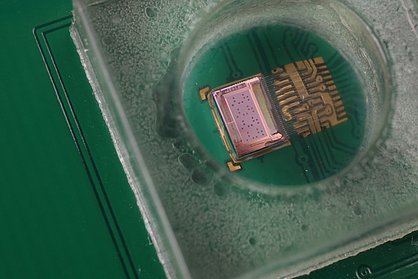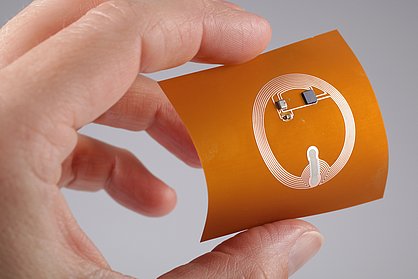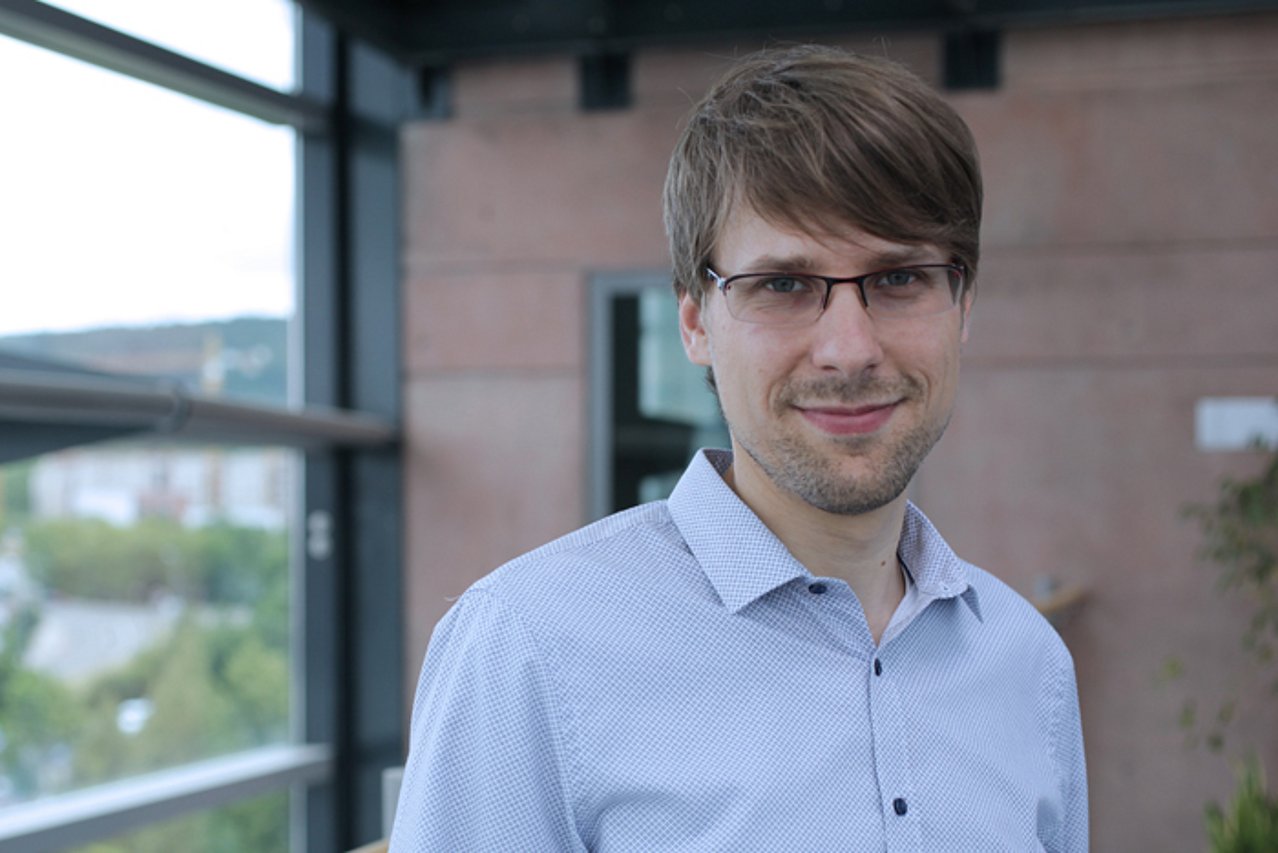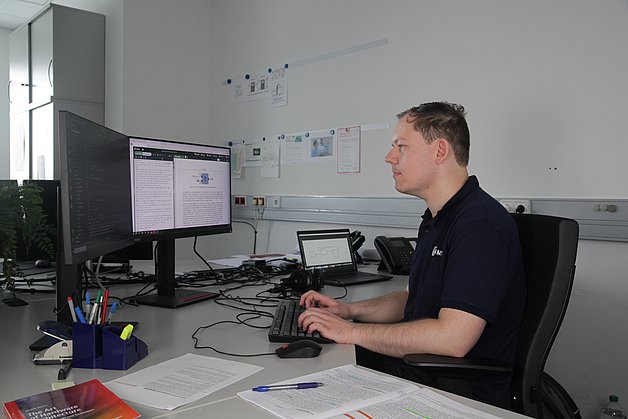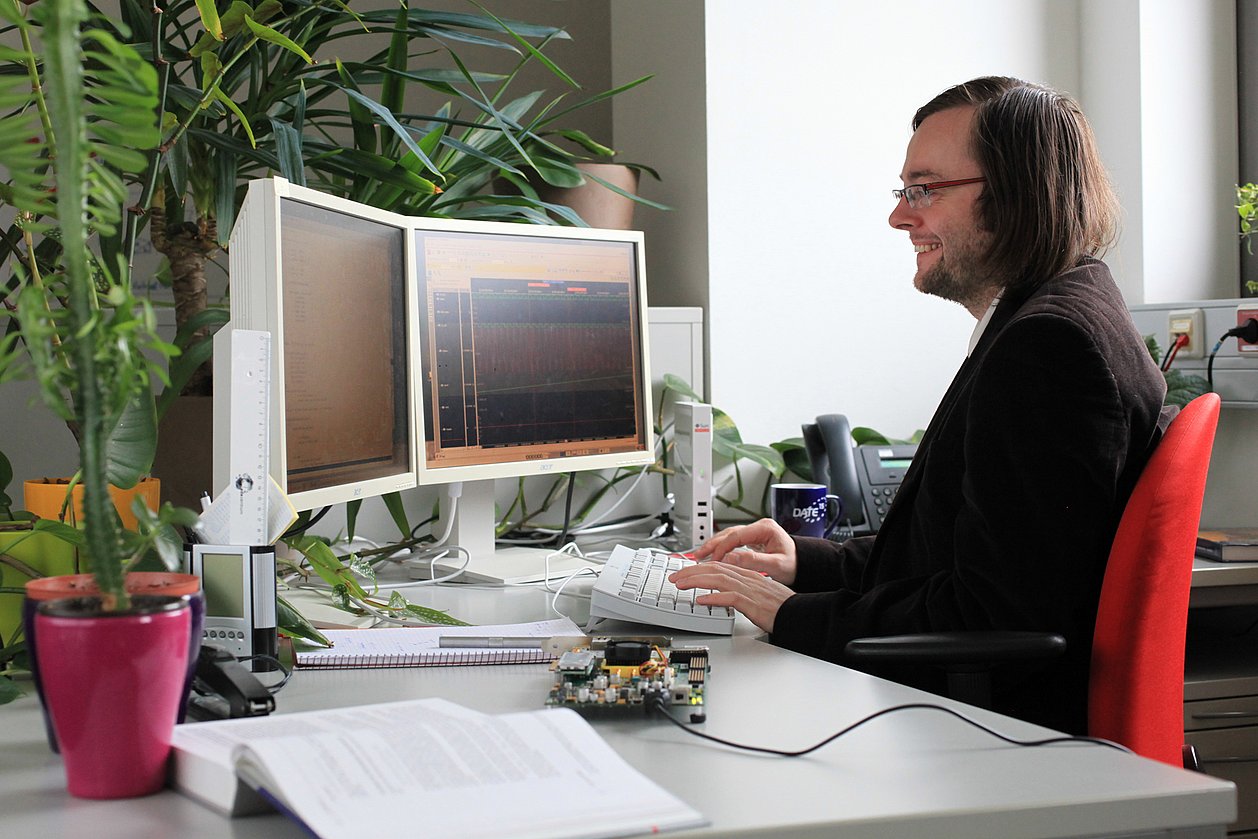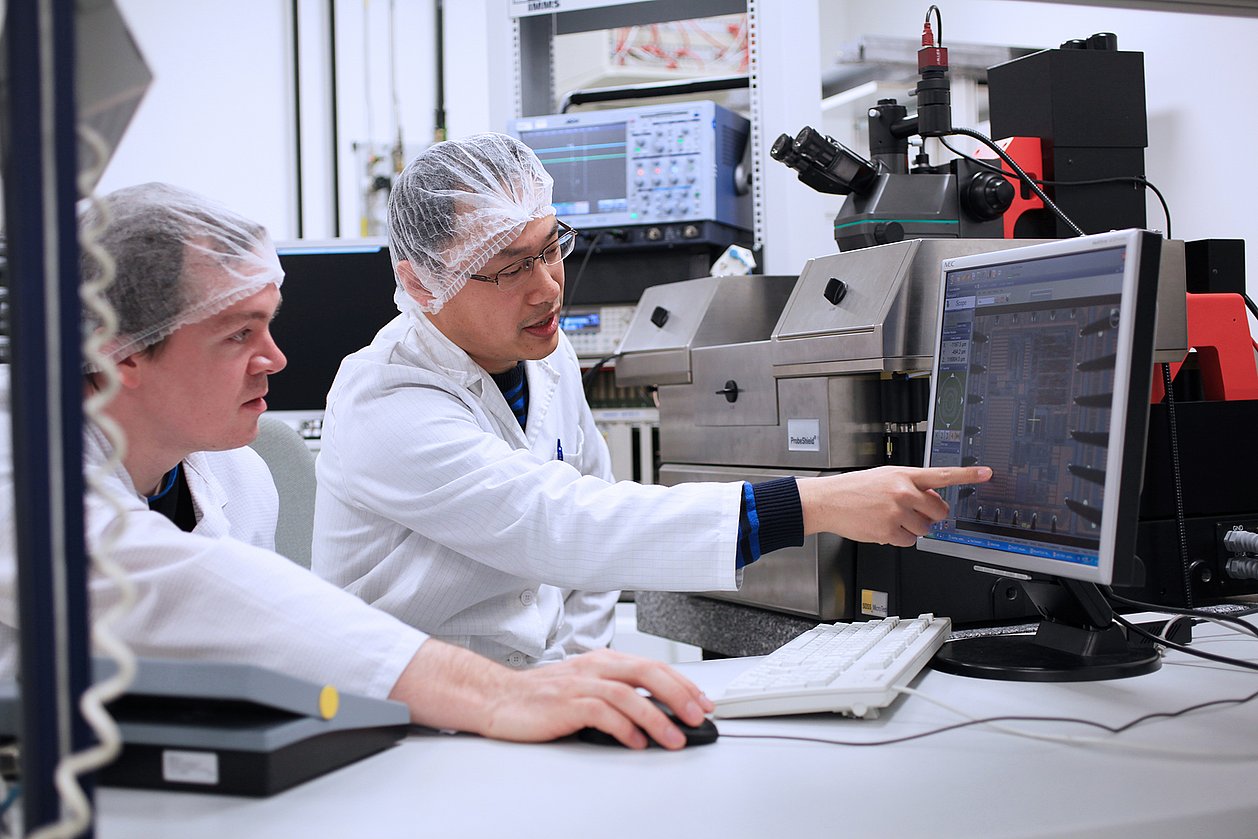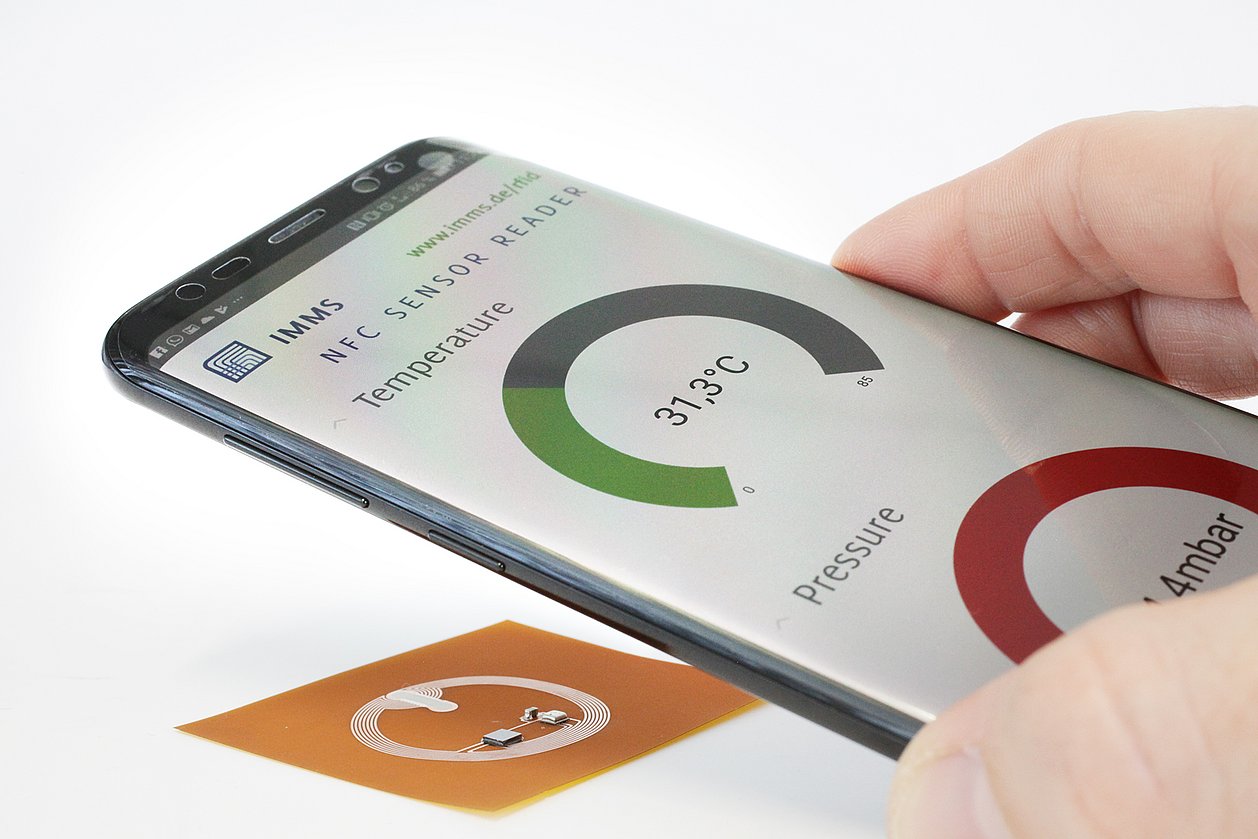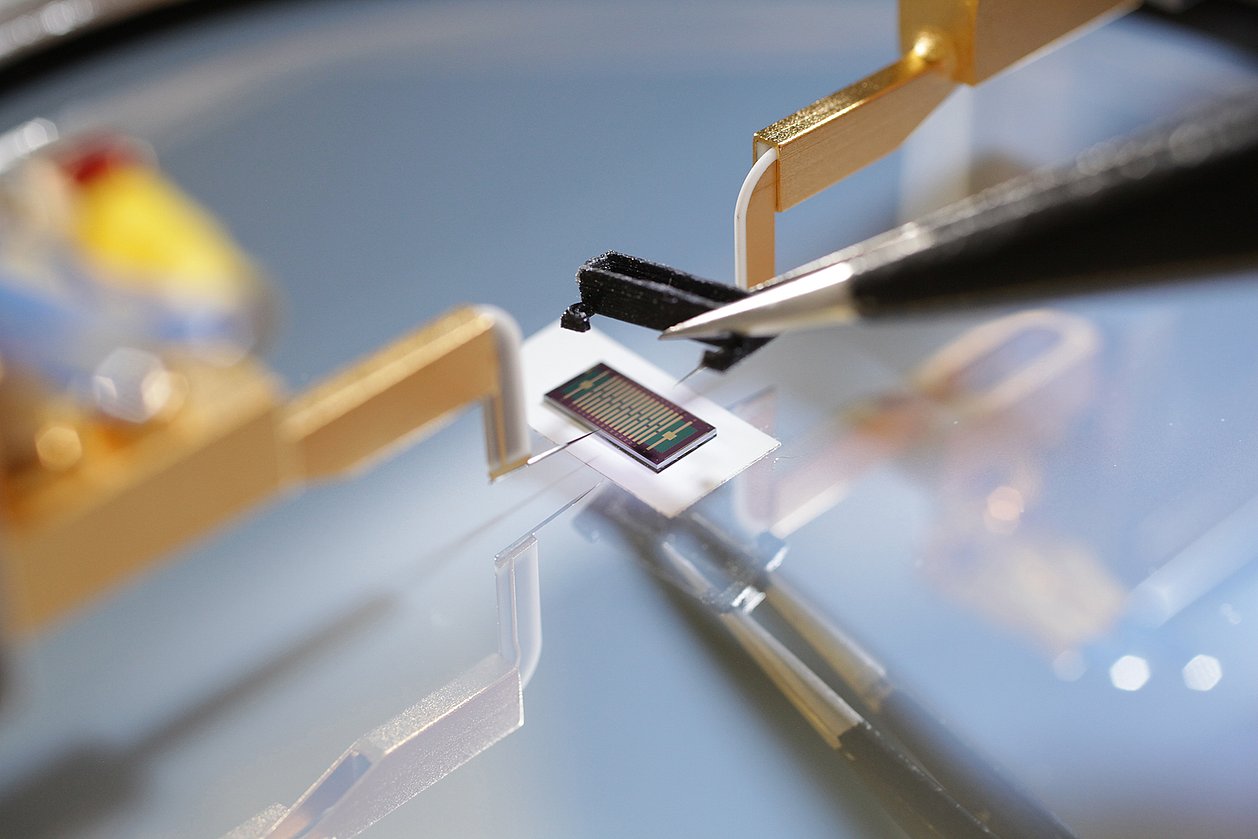Research field Integrated sensor systems
In the research field “Integrated sensor systems”, we investigate miniaturised systems manufactured in semiconductor technology consisting of microelectronic and/or microelectromechanical components for sensors applications, as well as methods to design these highly complex systems efficiently and safely.
Integrated sensor systems connect the analog with the digital world:
Electrical, mechanical and optical parameters can be directly detected, amplified, digitised and transmitted on these silicon chips with an edge length of just a few millimetres. They are mobile, energy-efficient, precise and powerful and therefore represent the key technology for the Internet-of-Things (IoT). Functionalised chip surfaces can be used to measure additional physical as well as chemical and biological parameters. With integrated sensor systems, structural sizes in the µm range can be achieved and thus properties can also be detected on a molecular scale, such as in the sequencing of DNA.
New applications and commercial technologies
We aim to pioneer new applications through functional integration and miniaturisation.
The goal of our research is always industrial exploitation. We therefore focus on system design with commercial semiconductor technology. Large quantities can be used here to achieve competitive and cost-effective solutions. In addition, IP protection and trustworthiness are strengthened.
Integrated sensor systems are incorporated into solutions for all target markets of IMMS. In the lead applications of sensor systems for in-vitro diagnostics and RFID sensors, we focus on the use of integrated sensor systems in life sciences as well as in automation technology and Industry 4.0 target markets.
Contact
Contact
Eric Schäfer, M. Sc.
Head of Microelectronics / Branch Office Erfurt
eric.schaefer(at)imms.de+49 (0) 361 663 25 35
Eric Schäfer and his team research Integrated sensor systems, especially CMOS-based biosensors, ULP sensor systems and AI-based design and test automation. The results are being incorporated into research on the lead applications Sensor systems for in-vitro diagnostics and RFID sensor technology. It will assist you with services for the development of Integrated circuits and with IC design methods.
Related content
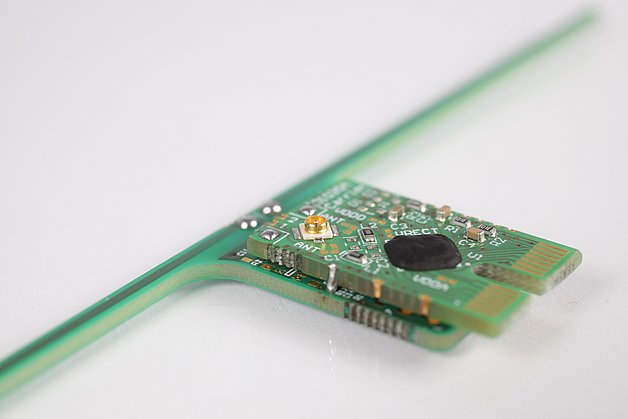
Project
NeAIxt
IMMS expands its UHF RFID sensor transponder ICs with innovative memory technology for smart sensor applications in logistics
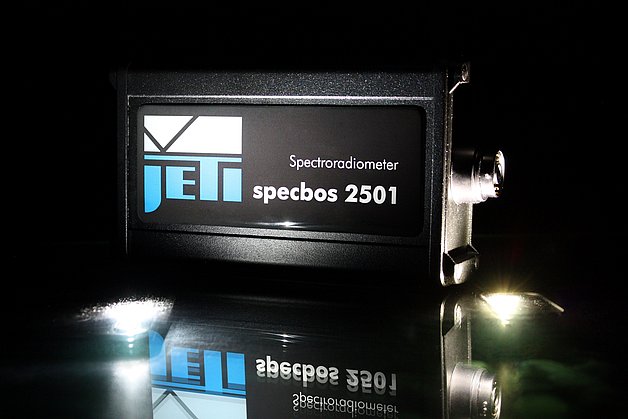
Project
PANDIA
IMMS develops novel CMOS and SPAD sensor ICs for spectroradiometers for faster and more sensitive analysis of light

Project
ScoreChip
IMMS is developing a SPAD-based line sensor for chemiluminescence detection to create a flexible microfluidic scanner platform for the cost-effective detection of biochemical reactions
Reference
Dr. Christof Steiner, DITABIS AG
IMMS can do much more than ‘just’ chip development – especially in the field of photonics and sensor technology. What we particularly liked: The IMMS team quickly and flexibly integrated itself into our network of DITABIS developers and external partners – with lots of ideas and a genuine team spirit.

Reference
Dr. Katja Nicolai, IL Metronic
“From my point of view, the numerous outcomes, many of them already validated by demonstrators, speak for themselves. These wireless solutions with their energy self-sufficiency are blazing the trail for quick, cheap and easy retrofitting. I envisage their use not only in manufacturing processes but in other areas such as transport and logistics.”

Reference
Sylvo Jäger, microsensys GmbH
“For a number of years now, we have been appreciative of our cooperation with IMMS. The Institute is for us an innovative technological partner in our own geographical area, capable of supporting us not only in implementing various development tasks in the ASIC design field but also of coordinating joint projects which benefit from industrial and public subsidy.”
Case Study on Compression of Vibration Data for Distributed Wireless Condition Monitoring Systems.
Rick Pandey1. Felix Grimm2,3. Dominik Nille2. Christoph Böckenhoff2. Jonathan Gamez1. Sebastian Uziel1. Albert Dorneich2. Tino Hutschenreuther1. Silvia Krug1,4.Applied Sciences 2025, 15, 12346. DOI: doi.org/10.3390/app152212346
1IMMS Institut für Mikroelektronik- und Mechatronik-Systeme gemeinnützige GmbH, Ehrenbergstraße 27, 98693 Ilmenau, Germany. 2Balluff GmbH, 73765 Neuhausen auf den Fildern, Germany. 3Institute of Smart Sensors (IIS), University of Stuttgart, 70569 Stuttgart, Germany. 4Department of Computer and Electrical Engineering, Mid Sweden University, Holmgatan 10, 851 70 Sundsvall, Sweden.Suitability of Radio Communication Technologies for Smart Orchards Considering Seasonal Effects
Silvia Krug1,2. Falk Eisenreich1. Tino Hutschenreuther1.2025 IEEE International Workshop on Metrology for Agriculture and Forestry (MetroAgriFor), October 28-30, 2025, Bologna, Italy
1IMMS Institut für Mikroelektronik- und Mechatronik-Systeme gemeinnützige GmbH, Ehrenbergstraße 27, 98693 Ilmenau, Germany. 2Mid Sweden University, Sundsvall, Sweden.CMOS-basierte Sensorsysteme für die In-vitro-Diagnostik
Alexander Hofmann1. Benjamin Saft1.elmug4future, Technologiekonferenz, 21. - 22. Oktober 2025, Jena, Thüringen
1IMMS Institut für Mikroelektronik- und Mechatronik-Systeme gemeinnützige GmbH, Ehrenbergstraße 27, 98693 Ilmenau, Germany.Before It Hits the Chip: A Gentle Introduction to Mixed-Signal IC Verification
Martin Grabmann1.ISSOM 25, International Summer School on Microelectronics, 25. - 29. August 2025, Leibniz-Universität Hannover, Hannover, Germany
1IMMS Institut für Mikroelektronik- und Mechatronik-Systeme gemeinnützige GmbH, Ehrenbergstraße 27, 98693 Ilmenau, Germany.


